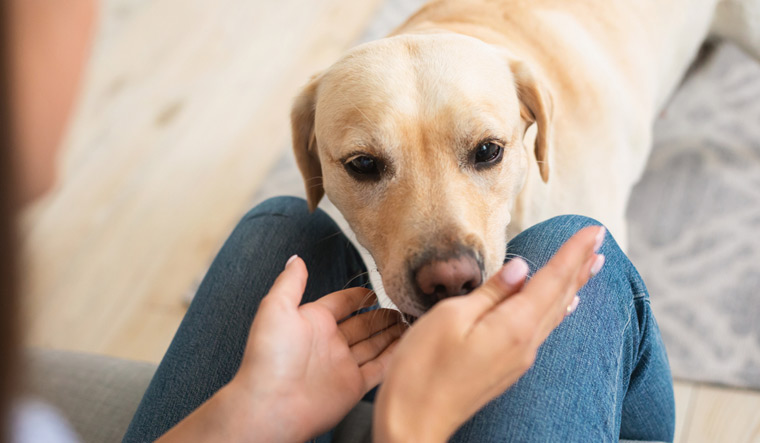Q/ What are some early signs and symptoms of arthritis in pets?
A/ Common signs most easily missed are always subtle signs. A bobbing movement of the head while walking is a common subtle sign that may get missed unless observed carefully. Inability to jump on to a couch or a low bed, placing the affected limb slightly lighter on the floor compared to the other limbs, not willingly walking long distances which earlier were easily scaled or covered and eventually, visible lameness in one or more limbs are some signs that shouldn't be missed in the early stages. Constant licking of the limbs, paws as digits can also be painful because of arthritic changes.
Q/ What are the dietary requirements of arthritic pets?
A/ Dietary requirements include glucosamine (for cartilage), chondroitin (major component of cartilage), sulfate (mineral salt), methylsufonylmethane (dietary supplement which relieves joint pain), hyaluronic acid (naturally produced in joints), vitamin C, and omega fatty acids. It is best to avoid feeding them anything that would result in excessive weight gain.
Q/ What can owners do to prevent arthritis in their pets?
A/ It is best to focus on correct nutrition from the beginning. There are some breeds who are prone to genetic conditions that may cause an earlier onset of arthritis, so it's best for pet parents to be educated on those breeds and prepare accordingly. Ensuring a thorough orthopaedic examination helps identify early anomalies that would cause an earlier onset of arthritis. So, please have a specialist check your pets at a young age itself.
Q/ Which animals or breeds are more prone to arthritis and why?
A/ All animals can get arthritic after a certain age or due to the wear and tear in their joints caused by incorrect growth, excessive exercise or underlying genetic conditions. Those animals who are inbred have a higher chance of various genetic conditions and are therefore more prone to early arthritic changes. Weight plays a major role in the prevalence of arthritis. Hence, obese animals are more prone to early and severe arthritic changes.
Q/ For a pet that has chronic arthritis, apart from surgery, what are the other measures to alleviate the pain?
A/ A fine balance of weight control, exercise, physiotherapy and joint supplements is a great way to manage osteoarthritis. In most cases, it is a long-term solution. Pain relief through oral NSAIDs (anti-inflammatory drugs) and physiotherapy modalities like cold laser and therapeutic ultrasound help alleviate pain to a great extent. Exercise in animals with osteoarthritis includes a combination of weight bearing and non-weight bearing disciplines which help achieve gradual loading and unloading of joints. Hydrotherapy provides a reliable solution for both weight loss and muscle strengthening without loading the joints completely.
At home, a pet owner should ensure that there is flooring that provides traction to avoid any slip or fall. Avoid playing games that would result in the pet slipping or skidding across the floor. Not expressing our love in the form of overfeeding is very important to avoid excessive weight gain.
Q/ How can early detection and intervention help in managing arthritis in pets?
A/ Time is a crucial factor in the changes that come about in cases of osteoarthritis. If detected early, chondroprotectants (alternative treatments for cats and dogs suffering from osteoarthritis) can have more time to act on the joints and delay the progressive damage. My advice to the pet owners with arthritic pets is to always be vigilant about subtle signs shown by your pet. Do not overexert them and avoid slopes and stairs as much as possible. The aim is to alleviate their pain and keep them as comfortable as possible for a good quality of life. Always remember that physiotherapy is a slow process where the miracles are sometimes in the form of small improvements over a long duration but they are all fruitful and effective.
Q/ Do you believe in the effectiveness of injectable therapy for alleviating pain and what are its risks or drawbacks?
A/ Injectable therapy for alleviating pain is initially necessary for most cases of arthritis for a very short duration but limitless usage of the same can cause damage to the liver and/or kidneys based on their route of absorption in the body.
Q/ What are the most common causes of arthritis?
A/ Common causes include:
1. Obesity
2. Inbreeding resulting in genetic conditions
3. Age
4. Improper nutrition
5. Traumatic injury in the past
6. Overexercise



